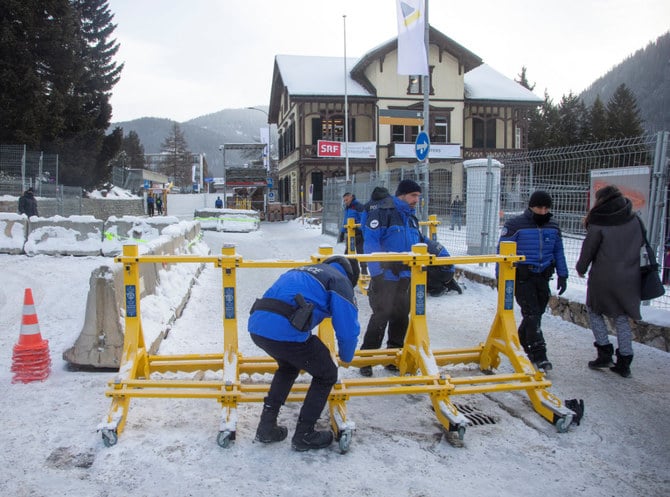
Some key lessons from REW in Moscow
The tight security ring around Moscow’s Manege conference center has been dismantled, the last matryoshka doll bought in the over-priced souvenir shops in Red Square, and the final egg and cabbage roll eaten in the Russian Energy Week (REW) media center.
It is time to reflect on a flying visit to the Russian capital for the country’s annual set-piece in global energy markets. REW is a comparatively young entrant to the international forums market, started in 2016 when the geopolitics of the energy world began to change. The Russians are now contesting the title of the biggest oil producer with the US, so REW it is a valuable addition to the international forum scene. Here are some of the lessons I took from the event.
1—The psychology of global oil markets has fundamentally changed. Participant after participant confirmed this. Alexander Novak, Russian energy minister, said that the old laws of supply and demand were now less important than the vagaries of global politics and economics, and that the oil price was being determined by the “black swans” — unpredictable events that could throw out calculations about economic growth and energy demand.
2 — The attack on Saudi oil installations last month has been largely forgotten by the oil economists. This is partly down to the recovery the Kingdom and Saudi Aramco mounted with impressive speed and efficiency, as eloquently described by Energy Minister Abdul Aziz in a plenary session where delegates hung on his every word. The oil price is now significantly lower than before the attacks, thanks to the economic black swans. The strategic and geopolitical repercussions of the attacks will be reverberate for a long time, but oil markets have other things to worry about.
3 — The global energy business is gathering its forces in the face of increasingly strident critics. The name of Greta Thunberg was much mentioned as a symbol of the way the world is turning against traditional energy, but more pressing for the Moscow delegates was the rise of electric vehicles and renewable energy sources. OPEC has widened its influence with the OPEC + alliance, and its secretary general Mohammed Barkindo announced another important step toward energy industry co-operation in an MoU with Yury Sentyurin, his opposite number in the Gas Exporting Countries Forum. Unity is strength for Big Energy.
4 — Some important Westerners have decided that sanctions against Russia are counter-productive. The American CEO of BP, Bob Dudley (who announced his departure from the job at the Moscow event) and Darren Woods, CEO of Exxon Mobil, were both in prominence at the event, and were reported to be seeking talks with Russian president Vladimir Putin. Though neither would say openly that sanctions had run their term, their presence in Moscow was interested as a sign that the energy business wants a return to pre-Crimea normality.
5 — Some of the smaller OPEC members are looking to play a bigger role in the organization. The Venezuelan energy minister Manuel Quevedo, stymied by American sanctions and domestic chaos, wants to lift production from less than 1 million barrels per day to 5 million, which would again throw out OPEC + calculations; the Nigerian oil minister Timipre Sylva pledged to abide by OPEC + production levels; the energy minister of Azerbaijan Parviz Shahbazov left open the possibility of his country — one of the movers in the OPEC + alliance — taking up the Opec place recently vacated by Ecuador.
6 — Vladimir Putin is still — unsurprisingly — the biggest draw in town. Security levels were ramped up even higher for his address on the REW opening day, and while his actual speech was a standard exposition of Russian energy policy, he was at his mischievous best in the Q&A that followed. He could see no reason to impeach President Trump over the Ukraine allegations; he was unconvinced that his ally Iran was behind the attacks in Saudi Arabia; and “kind and sincere” Greta Thunberg doesn’t understand that the “world is complex.” You could have heard a pin drop in the press room.
7 — Russian entrepreneurialism is alive and well under the auspices of the state. The taxi driver who took me to Domodedovo airport charged three times the fare I paid two days before to get into the city. When I challenged him, he just pointed to his meter and said “government.” It’s unwise to argue with the Russian government.










